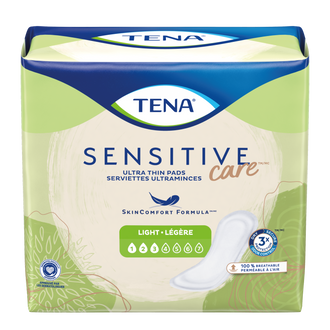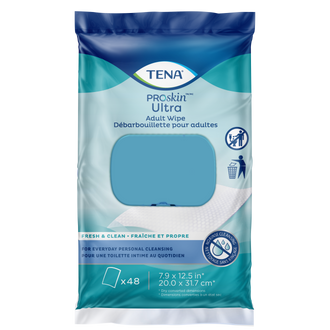New Report Reveals How Urinary Incontinence Impacts Daily Life
New Report Reveals How Urinary Incontinence Impacts Daily Life
Urinary incontinence (UI) affects millions of Americans, and it’s more than just a medical issue. It impacts confidence, sleep, and emotional well-being. In our latest survey, we asked people with UI to share their experiences, revealing the emotional toll, and the challenges in finding the right support. Here’s what we found.
Understanding the Emotional Toll of Urinary Incontinence
Living with UI is about more than just leaks. It’s also about the constant emotional burden that comes with it. Our survey revealed that the main feelings associated with the condition are embarrassment, self-consciousness and frustration. One of the primary concerns for people with UI is how it impacts their lives outside the home. Nearly half (48%) of those affected worry about losing control in public or not finding a bathroom in time, while about 1 in 4 fear others discovering their condition.
Some other things UI sufferers are most concerned about include the long-term effects, any potential smells, leaks that show up on clothes, having to change clothes often, and not finding the right products. We know that finding the right product is key — the wrong one can be uncomfortable and messy, and thereby, take a toll on confidence again. Plus, with UI, sleep is often disrupted. We found that 58% people wake up multiple times in the night and nearly a third (29%) don’t get good sleep because of discomfort or worry about leaks.
Surprisingly, only 19% of people have fully accepted UI as part of their life, which shows just how much more support and understanding are needed.
The Daily Struggles of Living with Urinary Incontinence
UI isn’t just about the physical discomfort; it’s the constant anxiety of potential accidents. Other stressors include the struggle to find products that are both effective and discreet, and wondering about which foods and drinks that may be making matters worse.
People with UI are always thinking about wet spots on chairs, finding bathrooms quickly, and managing unexpected accidents in public. This stress often leads to avoiding events and cutting outings short, which can put a damper on socializing.
What Those with UI Wish Others Knew
When asked what they wish others understood about the condition, the main point that came up was that it’s a common issue, not limited to any specific age group. Some also emphasized the importance of recognizing that with incontinence, accidents can happen, and no one should be shamed because of it.
Many feel like a burden because of frequent bathroom breaks on road trips or having to cut activities short. They wish people understood the psychological effect it can have on the person impacted and how helpless they can feel.
How Men and Women Compare
Men and women experience UI a little differently. Women tend to feel the emotional toll more intensely, with 57% saying they feel embarrassed compared to just 43% of men. Women also report more frustration, anxiety, and helplessness.
Men, on the other hand, often feel more isolated. Over half (53%) say they feel alone in dealing with UI, and they find it harder to express their feelings, which makes coping more challenging.
When it comes to concerns, women are more likely to worry about restroom access or losing control in public. Men worry more about others discovering their condition or long-term health effects. Interestingly, men also report more sleep disruptions — 53% say they sleep lightly due to fears of leaks. On the flip side, most women (72%) say that it doesn’t affect their sleep.
When it comes to offering support to people with UI, 57% of men say they don’t feel all that empathetic toward people with UI. But 54% of women report feeling very supportive towards people with incontinence. It really shows the importance of creating a more understanding and compassionate environment for everyone dealing with this condition.
What Age Groups Take on the Most Emotional Burden?
For those aged 55 and older, UI can be especially emotionally challenging. Two in five (40%) in this age group feel embarrassed, 38% feel frustrated, and a third (33%) feel anxious or stressed. Their main concerns are practical — like not finding a bathroom in time, losing control in public, and the cost of products.
Younger people, aged 25-34, tend to worry more about long-term health effects but don’t experience the same level of immediate concern. They’re also more comfortable discussing UI, likely because they’re addressing it earlier in life. On the other hand, 44% of those 55+ feel very uncomfortable discussing it with their friends and family.
Which U.S. States are the Most Affected?
We found that UI-related concerns vary across different U.S. states, and there are some variations in how it affects people's daily lives. For example, Californians (10%) primarily worry about finding restrooms and product affordability, while Floridians (7%) are more concerned about public accidents, and Texans (10%) focus on the long-term health effects of UI.
Some states report higher emotional tolls from UI than others. California (45%), Texas (43%), and Florida (41%) lead the pack, with residents there feeling more embarrassed and anxious about their condition. People in California (12%) report feeling the most uncomfortable talking about UI with friends and family.
While New Yorkers aren’t in the top three most emotionally affected, they top the list for being the most concerned about others finding out (8%). Michigan stands out as the state where people feel the least burdened by UI (5%), with many saying it wouldn’t bother them as much. Arizona (8%) ranked highest in lacking support for those with UI.
When it comes to sleep, both Californians (12%) and New Yorkers (9%) report disrupted sleep because of worries about leaks. It’s clear that UI can have a big emotional impact, even at night.
Take Control: Find Confidence with the Right Products
While UI can be emotionally tough, the right incontinence products can make a big difference. High-quality products help reduce leaks, provide comfort, and give you the confidence to go about your day without worry. If you’re ready to find something that works for you, check out our collection of products for both women and men:
Investing in products that provide comfort and protection can really make a difference in how you manage UI, and ultimately, how you feel about it.


